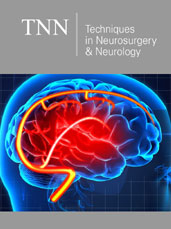Online Health Searching: A Perspective from South East Asia by Anushia Inthiran* in Techniques in Neurosurgery & Neurology_ Journal of Neurosurgery

Abstract
Searching
for online health information is an activity conducted by people from all walks
of life. Performing a health search is not a trivial task. A searcher could be
overwhelmed by the sheer amount of information available and the need to
understand technical and complex details; more so when the search is performed
by a layperson. However, the complexity and technicality of performing an
online health search does not discourage health consumers from performing a
health search on the Internet. Research studies from developed countries
provide information on the type of person who performs the search, sources
used, type of search performed, and devices used to perform the search.
However, similar information from South East Asia is limited. There are many
reasons for this, among them being the lack of medical knowledge and experience
and low levels of health literacy in comparison to health consumers in the
developed world. Nevertheless, there is some information about online health
information searching from South East Asia. In recent years, researchers have
started shedding light on the online health information searching behaviour of
health consumers from South East Asia. Often, the purpose of these studies is
to explore, describe and compare online health searching behaviour of health
consumers in developing countries and in developed countries. These research
studies conducted in South East Asia contribute to literature within this field
and has made the online health information searching scene rich. The aim of
this opinion piece is to describe what is known about the online health
information searching behaviour within the South East Asian region and to
postulate direction of online health
searching within this region. South East Asian online health consumers indicate
experiencing positive and negative search experience. In some cases, post
search outcomes influenced the search experience. Results of a study indicate
information overload as the main negative concern. Other issues include pages
that contained too much information, pages were not properly structured and
presence of too many links on the page. This contributed to the search process
being cumbersome [1]. Results also indicate that the search process influenced
participants emotionally and resulted in them limiting the search activity from
proceeding further. As a coping mechanism some participants question the
comments and arguments presented on the site whilst other ignored any serious
implications presented on the page
https://crimsonpublishers.com/tnn/fulltext/TNN.000559.php
Crimson
Publishers: https://crimsonpublishers.com/
For more articles in Journal of Neurosurgery,
Please click on below link: https://crimsonpublishers.com/tnn/


No comments:
Post a Comment